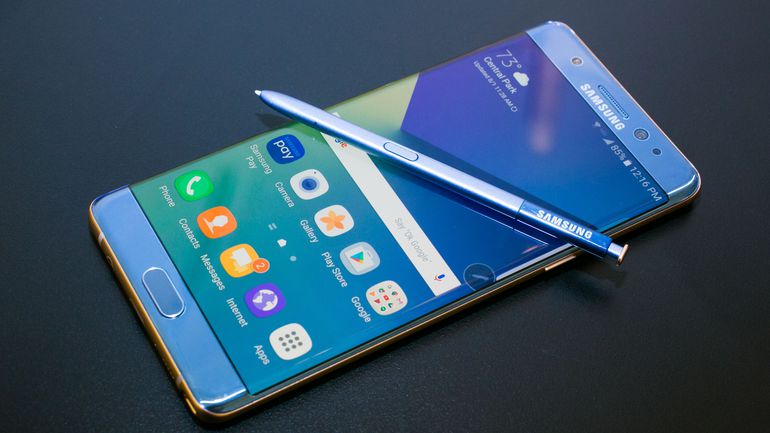- Samsung Profit Misses Estimates as Stronger Won Hits Sales
Samsung Electronics Co. reported lower-than-projected profit as it lost momentum in memory chips and faced a strengthening South Korean won.
Operating income rose to 15.1 trillion won ($14.2 billion) in the three months ended December, according to preliminary results released Tuesday. That compares with the 16.1 trillion-won average of analysts’ estimates compiled by Bloomberg. Shares of Samsung fell 1.6 percent to 2,559,000 won in early trade.
Prices for benchmark memory chips have leveled off after a year of strong gains, limiting the growth that had powered Samsung to record earnings in the past two quarters. That has combined with rise of about 7 percent in the won against the dollar in the fourth quarter to erode the value of profits earned abroad. Still, rising demand for organic light-emitting diode screens helped to fuel a rise in sales to 66 trillion won in the quarter, compared with the 67.6 trillion won analysts expected.
“The exchange rate probably undercut the earnings by 300 to 400 billion won,” said Greg Roh, an analyst at HMC Investment Securities Co. “Given special bonuses as well as a lot of marketing expenses for smartphones and televisions in the fourth quarter, we can expect a steep rise in the first-quarter operating profit to 15.9 trillion won.”
Samsung, based in Suwon, South Korea, leads in the next generation of screens called organic light-emitting diodes. It supplies OLED screens for Apple Inc.’s iPhone X even as the two companies vie for dominance in the global smartphone market.
Samsung won’t provide net income or break out divisional performance until it releases final results later this month.
Samsung’s shares hit record highs in 2017 before sliding in November after Morgan Stanley downgraded the stock citing an expected peak in the memory chips cycle and a slowdown in smartphones.
South Korea’s government this month warned about the rise in the won and said it will take steps in the case of one-sided moves in the nation’s currency.
“The won-dollar exchange rate is worrisome,” Lee Seung-woo, an analyst at Eugene Investment and Securities, said in a report before the announcement. “The first quarter earnings are expected to be 15 trillion won.”
Samsung is said to be planning to debut its new flagship smartphone, the Galaxy S9, next month, presenting Apple’s iPhone X with a sooner-than-expected challenger. Samsung is also seeking to release a phone with a bendable display to help fend off challenges from Huawei Technologies Co., Oppo and other Chinese rivals.
The company’s cash cow has been the memory business. Contract prices for 32 gigabyte DRAM server modules nearly doubled last year while prices for 64 gigabit MLC NAND flash memory chips rose 55 percent in the same period, according to inSpectrum Tech Inc.
Samsung underwent a leadership change on the heels of its record earnings in the third quarter, with CEO Kwon Oh-hyun resigning to pave the way for Kim Ki-nam, a seasoned semiconductor engineer. The company’s de facto chief, Jay Y. Lee, has been fighting allegations of corruption in court, appealing a five-year sentence given in August when he was convicted of bribing a presidential confidante to get greater control of the company.
The 49-year businessman denies the charges and is awaiting a ruling on his appeal by an appellate court on Feb. 5. Samsung Electronics, of which he is a vice chairman and board member, is the crown jewel of a conglomerate comprised of about 60 units selling selling life insurance, cargo ships and clothes.

 Forex3 weeks ago
Forex3 weeks ago


 Naira2 weeks ago
Naira2 weeks ago
 Billionaire Watch2 weeks ago
Billionaire Watch2 weeks ago




 Naira2 weeks ago
Naira2 weeks ago




 Naira2 weeks ago
Naira2 weeks ago




 Naira1 week ago
Naira1 week ago




 Naira4 weeks ago
Naira4 weeks ago




 Naira3 weeks ago
Naira3 weeks ago










